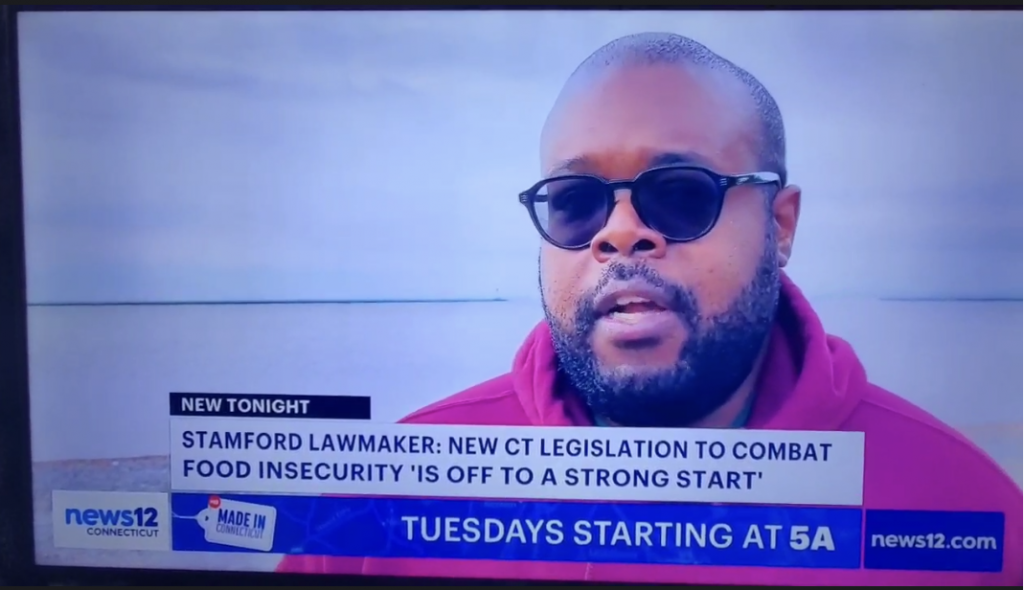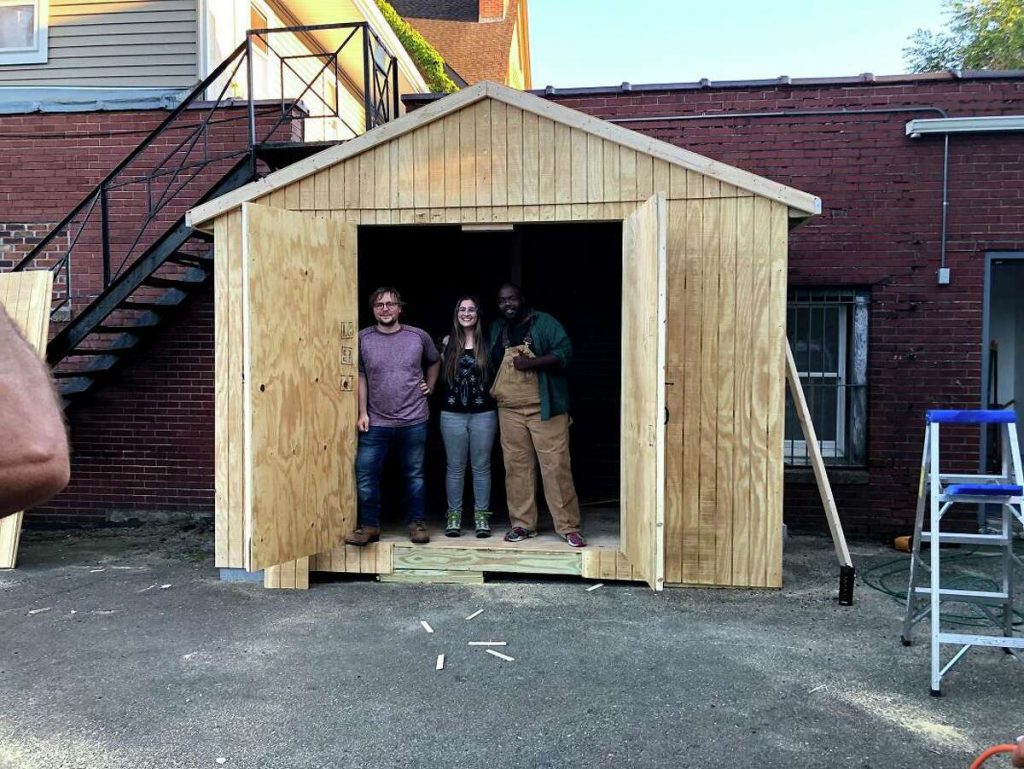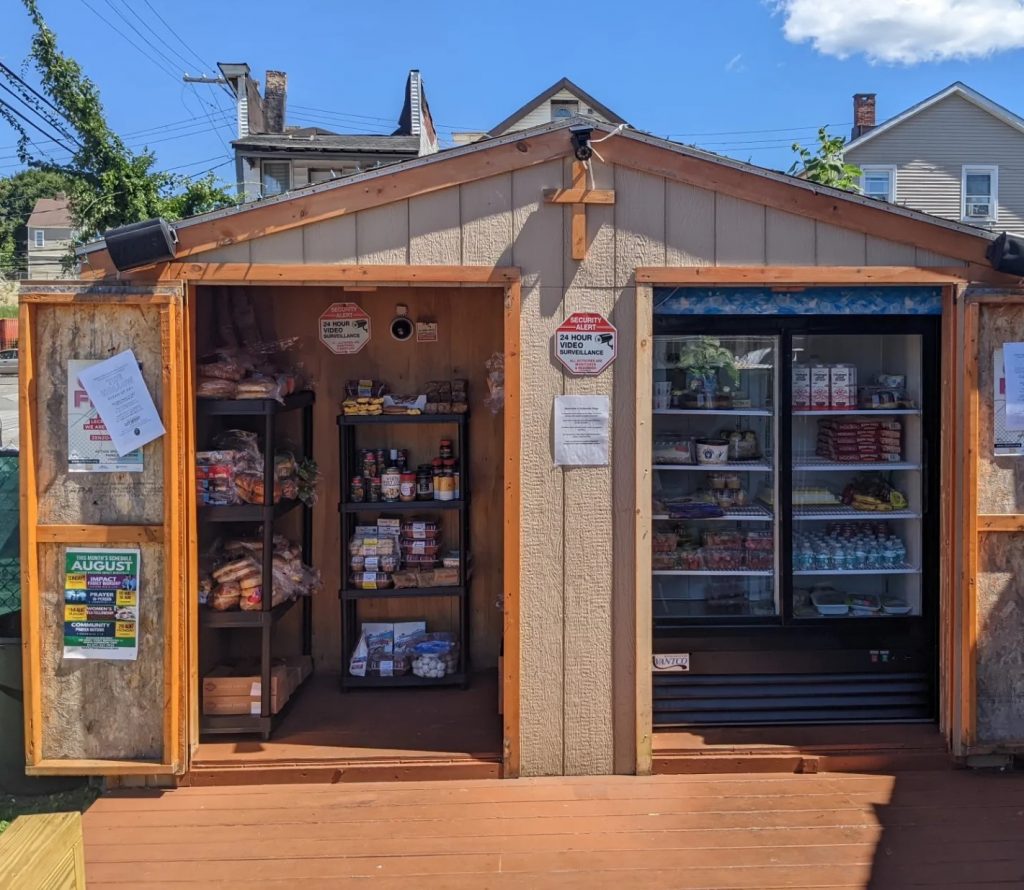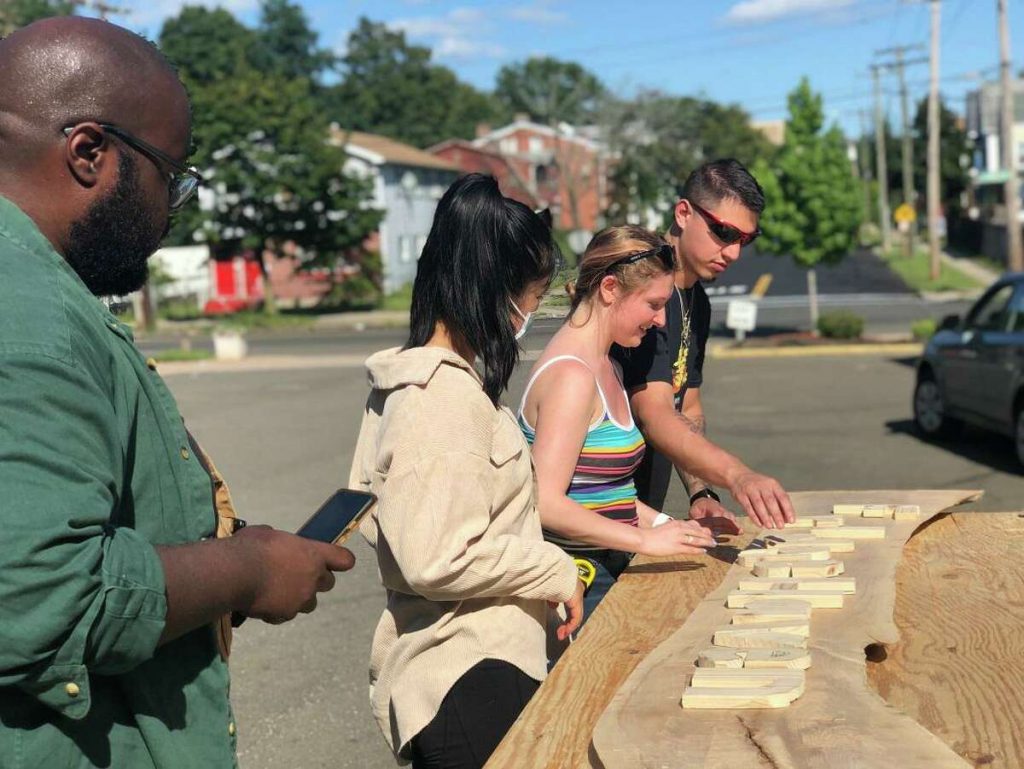
As part of our commitment to partnering with communities to support an equitable and environmentally just future, we are holding an ongoing series where we shine light on the sustainability work of BIPOC (Black, Indigenous, and People of Color) and intersectional justice-focused leaders of all ages.
Food justice is environmental justice because it relates to equal access to the decision-making process to have a healthy environment in which to live, learn, and work. Food justice is a holistic and structural view of the food system that sees healthy food as a human right and addresses structural barriers to that right.
Community leader, conservationist, and food justice advocate Reggy Saint Fortcolin recognizes the intersection between these issues. That is why he founded Fridgeport, a refrigerator and food pantry serving those in need in his home city of Bridgeport, CT.
To combat food insecurity, local nonprofit organizations, farmers and community members help stock the refrigerator and pantry. The refrigerator contains milk, produce, and frozen foods. The pantry is filled with a variety of shelf-stable items. Reggy says around 1,200 people a week grab what they need.

According to the U.S. Bureau of Labor Statistics, food prices rose 10% from 2021 through 2022, and this makes groceries hard to afford for people with low wealth. Fridgeport is one of many community fridges that have launched in the past few years to combat address lack of access to adequate nutrition for many living in Connecticut.
Reggy says “land protection and food justice are intersectional. It’s important we be good stewards of the land to ensure people have healthy food to eat and that they be given access to health food in the first place”.

After years of engaging individuals on the topic of food insecurity, Reggy wrote a food policy bill and worked in coalition with food justice advocates, including members from the CT BIPOC Food Network, The Foodshed Network, and individuals from over 60 different food rescue and mutual aid groups to push for legislation to move Connecticut to establish a state Food and Nutrition Policy Analyst position, increase spending on food rescue infrastructure, and create tax incentives for grocery stores in food deserts.
The Food and Nutrition Policy Analyst will centralize food access information and will play a role in equitably dispensing funds to support food access to food insecure populations in the state. This position exists under the Commission on Women, Children, Seniors, Equity, and Opportunity.
When asked about his next plans, Reggy says his work will continue to address equitable access to food and land. To elaborate on land, Reggy is one of many people in his community advocating for Remington Woods to become a botanical garden, state park or federally recognized wildlife refuge. Reggy and Remington Woods supporters want to ensure that new policy ensures as much protection of the woods as possible, while ensuring opportunities for recreation for Bridgeport and Stratford residents in particular.
When asked what he would say to those entering food justice work, Reggy says “talk to people in your neighborhood to identify the greatest needs. Mutual aid is showing love for your community without asking anything in return”.

